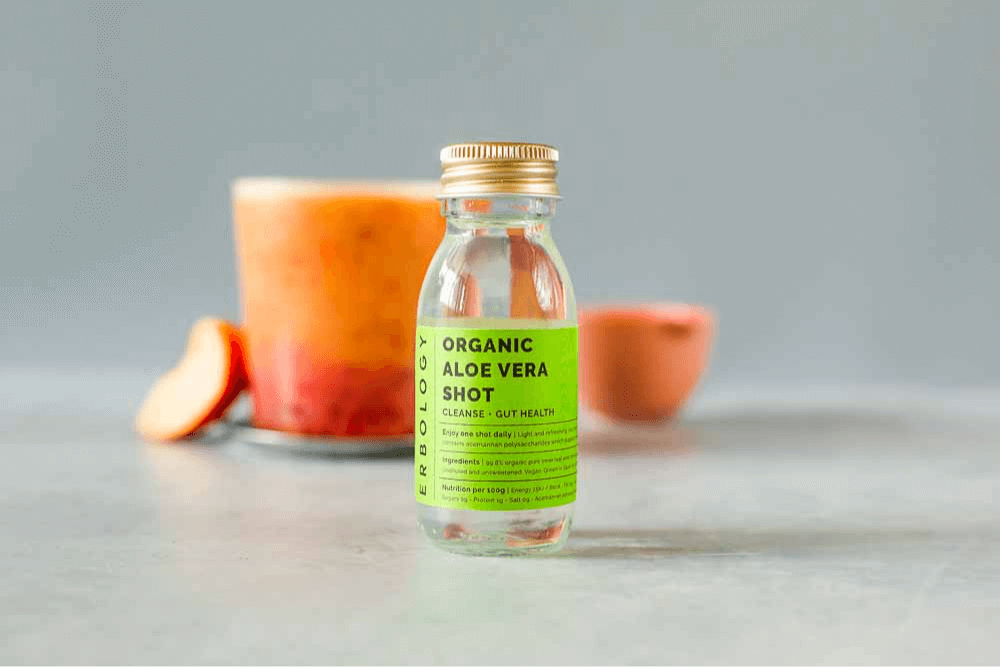21 May 2021
Aloe vera recipes
What is aloe vera?
Aloe vera is a succulent with characteristic spiky green leaves which grow in a rosette shape. Contrary to popular belief, it’s not a cactus (all cacti are succulents, but not all succulents are cacti!).
It tends to grow in hot, arid conditions and thus has developed an incredible ability to store whatever water it can get its hands on. So, while it looks dry and tough from the outside, within its leaves it stores an impressive amount of liquid.
It does this by creating a gel-like substance which holds on to as much water as possible,
https://youtu.be/m6RYscU70VI
Is the whole aloe vera plant edible?
Technically, you can eat whole aloe vera leaves, but we don’t recommend it. Firstly, you might mistake the edible species of aloe (aloe vera barbadensis Miller) for another less friendly version. Secondly, the skin is tough and not particularly pleasant to eat, although you can remove it.
Thirdly, aloe vera contains a substance called latex, or ‘sap’, a yellow liquid which is found between the skin of the plant and the gel inside. Its main component is a substance called aloin. It’s extremely bitter and can have adverse effects.
Aloe vera’s reputation as a powerful laxative comes mostly from its latex. Unsurprisingly, consuming too much of the latex can result in diarrhoea, abdominal pains and vomiting, among other unpleasant effects. It can also damage your kidneys and may even stimulate early labour in pregnant women. All good reasons to avoid it!(1)
When people talk about consuming, eating or drinking aloe vera, they are usually referring solely to the gel inside the leaves. Indeed, that’s where all the healthy nutrients are anyway. So, our advice is to stick to that and avoid the latex and skin.
Of course, if you want to avoid all the bother of removing the skin and latex and then crushing and extracting the inner leaf juice yourself, we highly recommend our Organic Aloe Vera Juice!
![]()
Where is Erbology aloe vera from?
While you might expect our aloe to come from a distant desert, we actually source it from southern Spain! More specifically, our aloe vera comes from Andalusia, and in particular the areas around the cities of Huelva, Almeria, Seville, Córdoba and Málaga.
It provides the perfect climate for our aloe plants without the need for a distant desert location!
The independent organic farmers we work with produce the highest quality aloe vera juice by making sure their aloe plants meet certain conditions before harvesting.
The plants must be over three years old, which means that their levels of beneficial nutrients are at their highest. They also only pick aloe vera leaves to order, to minimise waste and ensure freshness. Aloe vera grows all year round, so it’s simply a matter of popping out to harvest what they need.
Next, our farmers carefully extract the juice from the inner leaf of the plant only. Why? To make sure none of the tough skin or latex makes its way into our juice.
This is why, instead of having an unpleasant taste from the outer layers, our aloe vera juice has a light, refreshing taste with just a hint of natural bitterness.
Why is aloe vera good for you?
We have a whole article which goes into a lot of detail on aloe vera’s health benefits. But, by way of a quick recap, aloe vera contains 75 active compounds including vitamins, minerals and enzymes; all good stuff for your body to soak up.
However much of the interest in aloe vera is related to special sugars called acemannan polysaccharides. Scientists believe that these are responsible for many of aloe’s health effects.
Besides being well known traditionally as a digestive aid, aloe vera can help in other areas. Research has shown that acemannan polysaccharides can help support your immune system and aloe may even help regulate blood sugar levels.(2)(3)(4)
Our aloe vera juice contains 1600mg of acemannan polysaccharides per litre. This is higher than many other aloe products on the market, which are often sourced from Mexico.
Related reading
undefined

Organic Aloe Vera Juice

Organic Aloe Vera Shots

Organic Aloe Vera Juice
